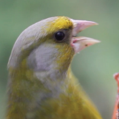Problematic satire
I don't actually know how to review this obscure TH White novel. It needs three considerations, which I'll divide up below.
First, the novel centres on "Mr White", an English gentleman living in rural Ireland in the 1940s. White himself moved to Ireland as a conscientious objector to WWII, and lived there for some years. In the story, the archangel Michael appears and instructs White and his two Irish hosts to build an ark as a second flood is coming. The story follows the building of the ark, including some interesting pragmatic considerations (what to leave behind, how much food, etc). There is undoubtedly a lot of thinly veiled autobiography in the story, even if it is a satire.
The second consideration is how Irish people are treated by an English writer. Even as a satire, the stereotypes of lazy, violent and stupid rural people are rolled out liberally. While …
I don't actually know how to review this obscure TH White novel. It needs three considerations, which I'll divide up below.
First, the novel centres on "Mr White", an English gentleman living in rural Ireland in the 1940s. White himself moved to Ireland as a conscientious objector to WWII, and lived there for some years. In the story, the archangel Michael appears and instructs White and his two Irish hosts to build an ark as a second flood is coming. The story follows the building of the ark, including some interesting pragmatic considerations (what to leave behind, how much food, etc). There is undoubtedly a lot of thinly veiled autobiography in the story, even if it is a satire.
The second consideration is how Irish people are treated by an English writer. Even as a satire, the stereotypes of lazy, violent and stupid rural people are rolled out liberally. While sometimes sympathetic, and often also self-critical of the foolishness of the Englishman who thinks he is superior, the delivery is still offensive (I am Irish, and have encountered this type of stereotyping in my life, and it does sting). I couldn't help think that if this was written about another British colony, like Kenya, the text would be abhorrent.
Third, and this deserves consideration, it is a well-written, sympathetic and funny book in the vein of Evelyn Waugh or Flann O'Brien. White takes aim at Catholic Ireland brilliantly, and really lands his punches (the book was even banned for blasphemy by the church in Ireland on publication). It is joyful and thoughtful, and a very well written satire, when the paddy-whackery is not prominent.
These fragmented thoughts are not independent of one another. I fought through offence and read this as an interesting historical document, a record of embedded eugenics that White grew up with, as well as of power systems emerging at a specific moment in a newly independent Ireland, viewed from an "outside" perspective. But the complexity of this makes it hard to say whether I liked the novel, or could recommend it.

